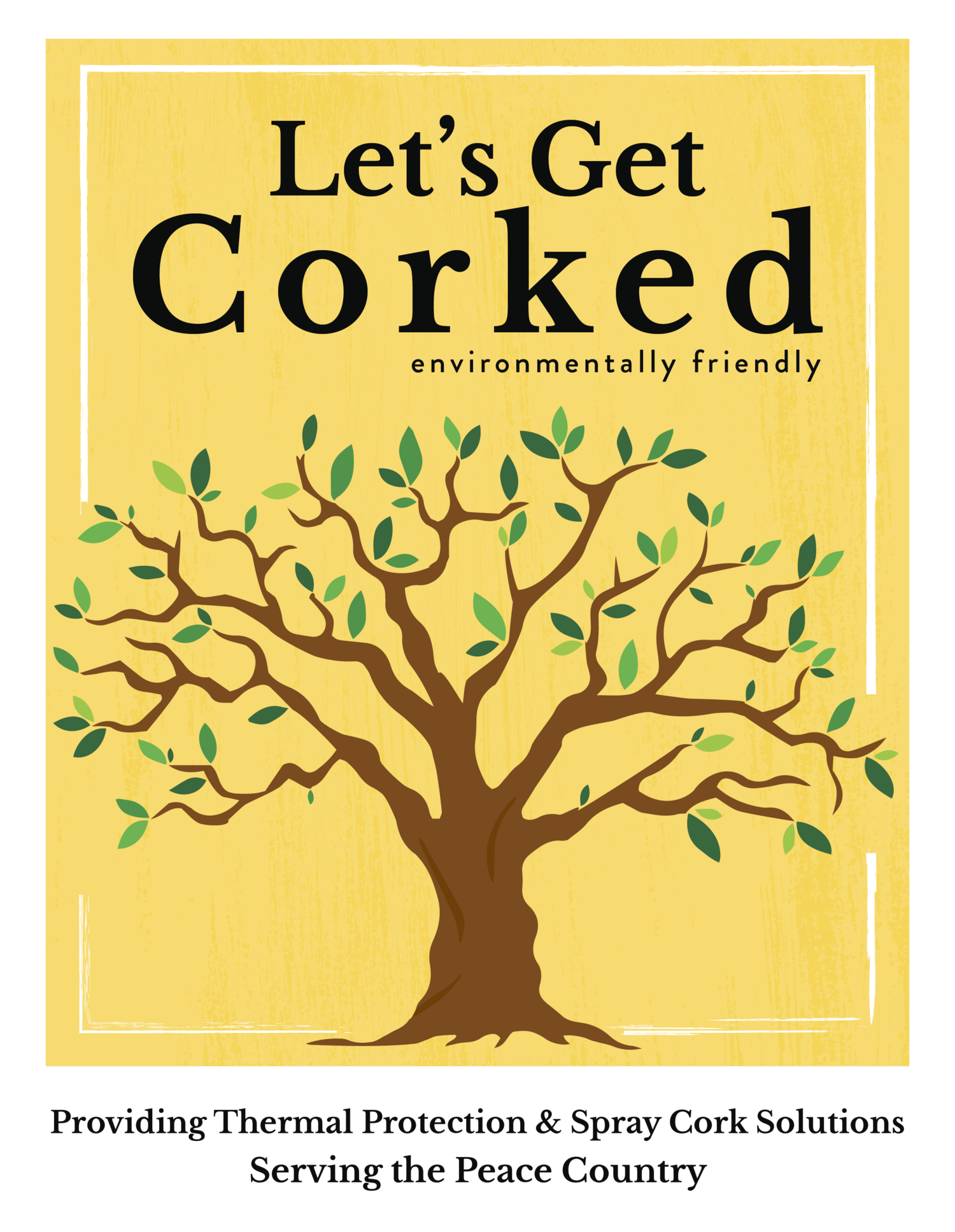
FAQ’s
All of your Thermal CorkShield™ questions, answered.
Frequently Asked Questions
What is Thermal Bridging?
A thermal bridge is an area ( frequently on a building ) where a significantly higher heat transfer exists in relation to the surrounding materials. This leads to an overall reduction in thermal insulation value.
Will I have to modify my building to support the product?
No, 88% of our Thermal CorkShield product’s volume is air. This translates to a lower density; approx. between 0.12-0.24 quartz/ lb.
How is the product applied?
Thermal CorkShield is applied onto the surface using a textured sprayer by one of our certified applicators.
What colour are available?
We currently have 30 colours to choose from, custom colours are available upon request.
What other uses are for Thermal Cork-Shield?
We have applied to rv roofs and walls, campers ( fiber glass and metal) , ice fishing shacks, utility and recreational trailers, industrial equipment and tanks, and more.
What is the warranty?
The warranty has just gone up from 10 years to 15 years given our past performance we were able to raise it just this year!!!
What is the cost to have it applied on my building?
Cost varies depending on many factors, please contact one of our distributors/applicators for pricing.
How does a contractor become involved with the product?
Contact Vipeq Canada directly for any opportunities to become a distributor or applicator.
Does it absorb sound?
Depending on the surface it is applied to Cork can absorb unwanted echoes and sound. When applied on the exterior of a home it greatly reduces unwanted noise from entering your home.
Is it fireproof?
Our test have shown that Thermal CorkShield has zero flame spread, will not release incandescent particles that could cause fires
Is it waterproof and breathable?
It is water resistant. Just like cork in a wine bottle it will stop the passage of moisture going through however allow it to breath. On your wall it is an effective semi-permeable envelope.
Is it flexible?
The capacity to recover the initial volume after deformation allows it to be very flexible. It can virtually eliminate the cracking seen in most stucco type finishes.
What type of surfaces will Thermal CorkShield stick to?
Because the cork is lined with micro suction-cups that permit it to adhere to the surface without allowing it to slide, it has a High Friction Coefficient, allowing it to adhere to almost any surface! Brick, stucco, wood/composite/metal siding, glass and more. ( we will coat pretty much anything with exception to vinyl siding )
Is it toxic?
No, we are proud to offer a water-based product with other natural and renewable resources that is non voc and non-toxic.
Does it fade like paint?
Because we dye each mixture on site with our own proprietary pigments, we are seeing less than 1% fade annually, compared to the 5-10% average that comes with traditional paint and stucco.
Is Thermal CorkShield a green product?
With our proprietary water based resin and natural cork, we are proud to offer an environmentally friendly and renewable product. The bark of the cork tree is removed every nine years causing large amounts of oxigen to be released by the tree into the environment. The tree will last for hundreds of years continuing to grow new bark. Thermal Corkshield is a greener naturally renewable resource.
How does it stand up to the cold, will it freeze?
Cork will never freeze thus remaining maleable in the most extreme temperatures.
Can I lower my energy costs using Thermal CorkShield?
Certainly, energy savings vary from 10-50%, depending on the structures age and type.
How does cork add R value to my home and help with efficiency?
Cork works along with an already existing or properly engineered wall as a “Functioning Finish”, often the R Value in a wall is compromised by drafts, convection, conduction, or reflection of energy and the insulating properties are greatly reduced. Cork cannot physically freeze or reach temps above 85 degrees F (30 degrees C), and being projected at the wall it fills all the gaps and cracks that allow drafts. We are also rated with a U value of 0.068 giving, showing at 1/8 of an inch that we can effectively stop the transfer of energy before it reaches your insulation. The performance of cork is not based on an R value, it is based on a K value of 0.068 W/mK which means the heat and cold from outside will not be transferred to the substrate.

